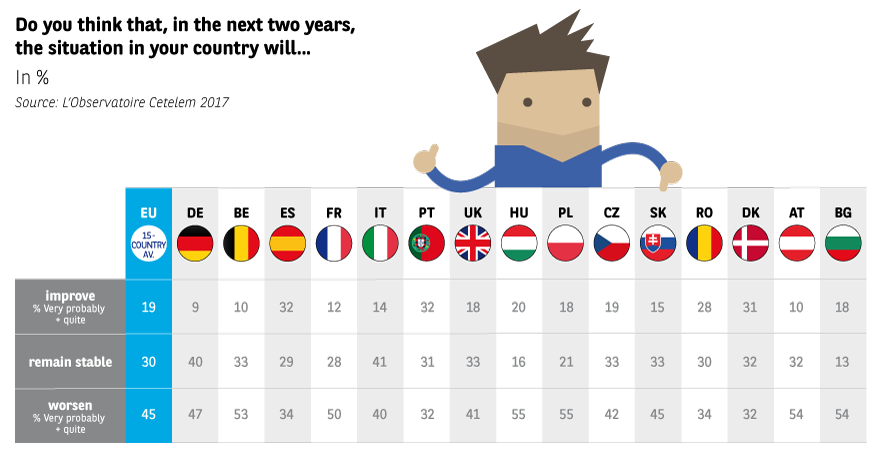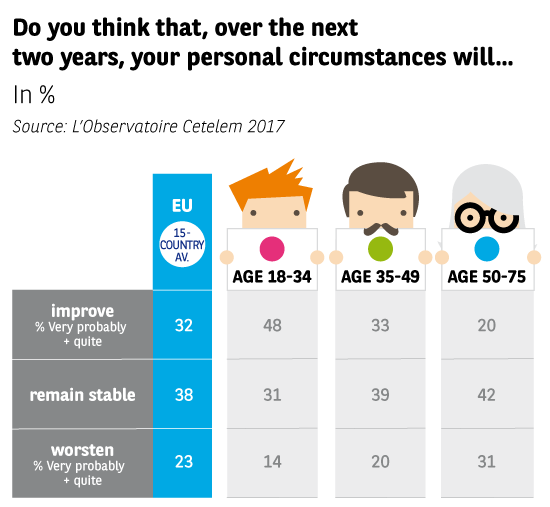The French display great pessimism: tomorrow will be worse than today


The French display great pessimism: tomorrow will be worse than today.
France is one of the countries in which opinions are almost invariably more negative than the European average.
Only the consequences of Brexit and, to a lesser extent, the country’s healthcare system, fail to generate a deep melancholy (44% and 30%). But four out of five French consumers are concerned about their country’s economic situation, its capacity to reform, its education system, the migratory situation and the environment. Moreover, 50% of the French population (45% of Europeans) believe the situation will worsen over the next two years.
Consumer thoughts
« The presidential elections will clearly have an impact on our future – my family’s, that of my fellow citizens, yours… So yes, I am concerned and I believe more and more that my children’s future could lie outside my country, outside France! »
Europeans are more optimistic regarding their personal circumstances in the next two years. 32% believe it will improve and 38% think it will remain stable. Interestingly, young people are much more optimistic. 48% of under 35s consider that their circumstances will improve.
Consumer thoughts
« Nobody can claim to be in a stable financial situation any more, given that just about anyone can be laid off nowadays; there are no jobs for life like there used to be. »


